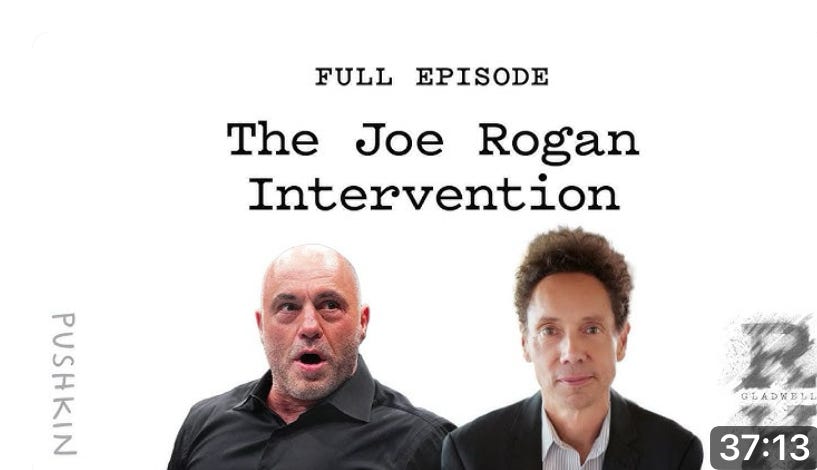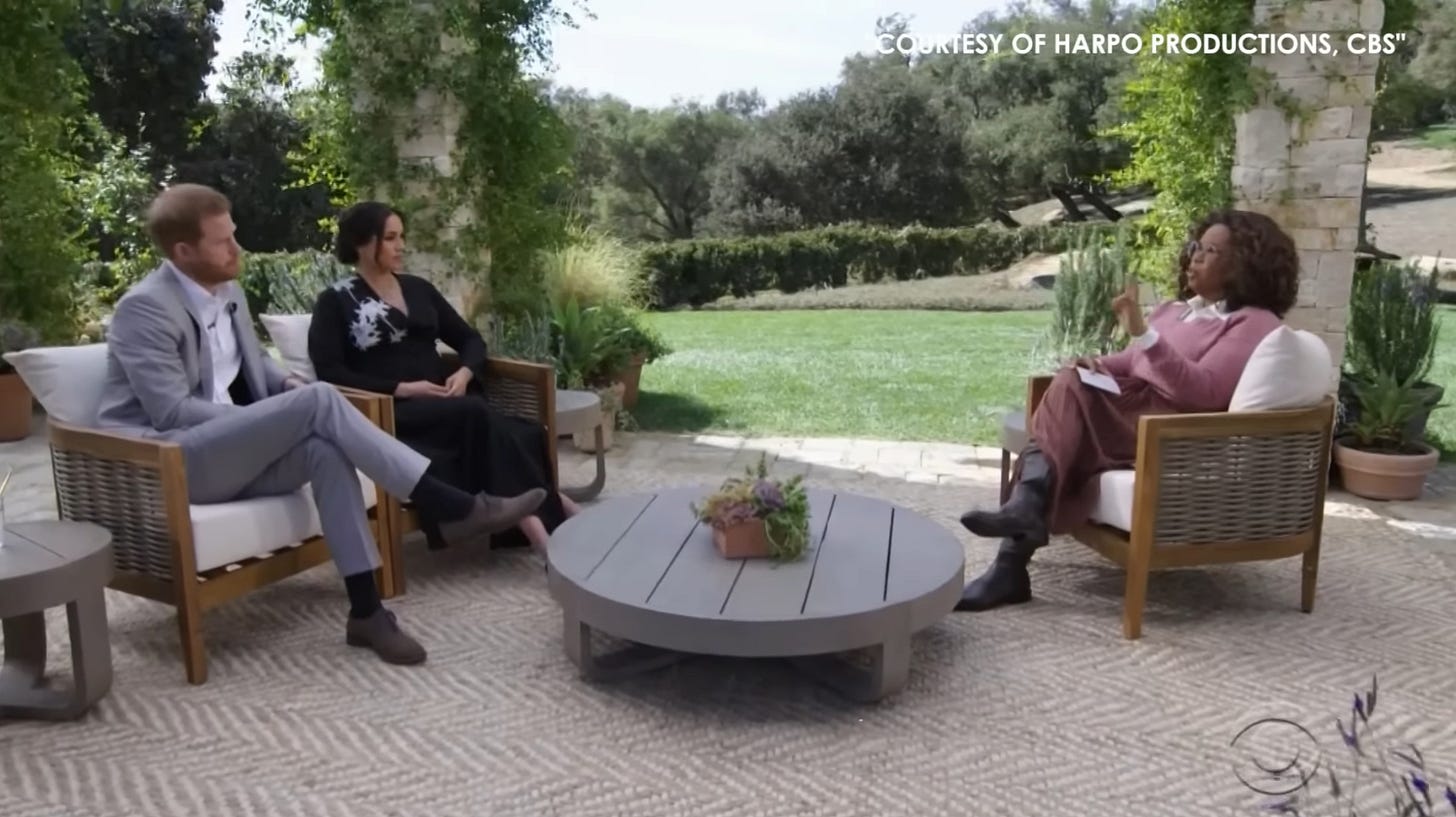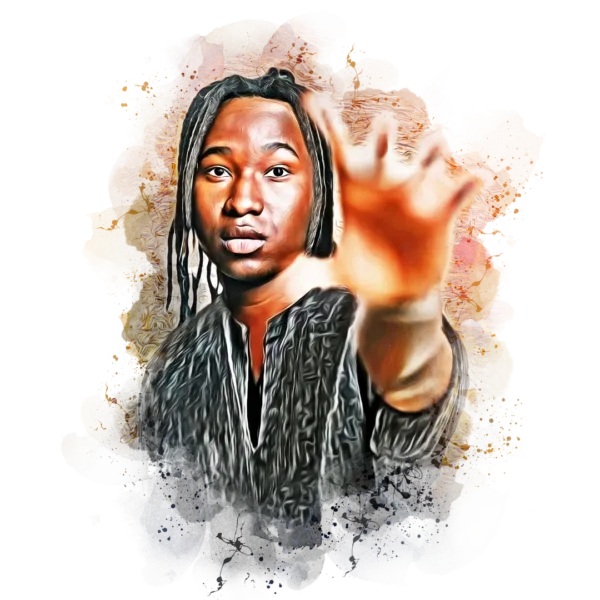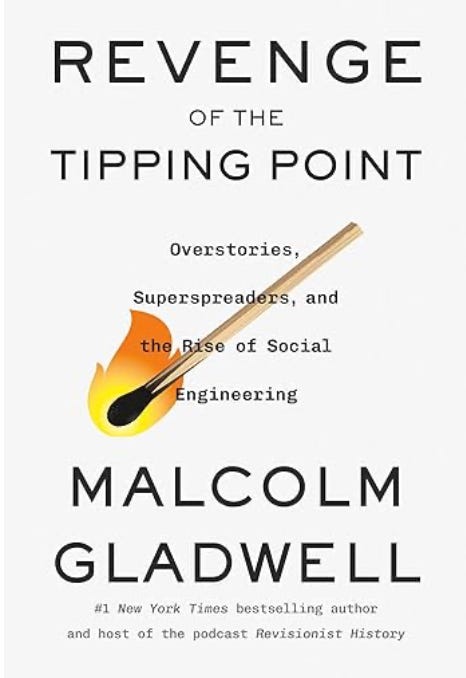The Question is the Answer
We’re wired to believe the first story we hear. But truth often requires a second look — and the right questions. That’s where we gain wisdom.
All King David’s Men brings you contemporary stories and reflections on virtue, inspired by the people who surrounded King David. Some of them are heroes, others anti-heroes. All of them provide a mirror for us to reflect on becoming better versions of ourselves.
The Power of Probing Questions
Last week, I was in Austin, TX for work—a place where cowboy hats, rock and roll, and “Occupy Mars” t-shirts mix freely. It’s also home to Joe Rogan, the podcaster with a massive audience and the power to shape public opinion. His appeal lies in the casual, open-ended conversations he has with guests.
But in a time when confident voices often drown out critical thinking, his unfiltered style raises a question: what happens when we stop asking hard questions and start mistaking charisma for truth?
Gladwell on Rogan’s Interview Style
I was surprised to learn that even author Malcolm Gladwell occasionally listens to Rogan’s show. He explained that the most revealing content emerges around hour three, when guests let their guard down and speak more freely.
As a skilled interviewer himself, Gladwell appreciates what makes Rogan’s approach unique. Unlike traditional interviewers, Rogan rarely challenges his guests—even when they make bold or questionable statements.
Oprah and the Art of the Follow-Up
By contrast, Oprah Winfrey is known for her incisive questions, especially when she detects contradictions or vague claims—even from high-profile guests like Harry and Meghan, the Duke and Duchess of Sussex.
As Gladwell explains, when the couple appeared on Oprah’s show and shared that people within the palace were uncomfortable with the racial features of their future children, Oprah didn’t simply accept the statement. Instead, she asked for clarification: who said it, what exactly was said, and to whom?
As a Black woman who has faced racial prejudice herself, Oprah might have been expected to uncritically support Meghan. But her commitment to truth required her to probe deeper, to separate feelings from facts without dismissing either.
The Risks of Uncritical Platforms
Gladwell compared Rogan’s approach to that of a supportive friend—someone who offers encouragement rather than critique. This conversational style can feel welcoming, but it carries risks. When interviewers don’t question their guests, listeners may confuse speculation or misinformation for truth.
A striking example is Rogan’s interview with RFK, Jr., in which the future Secretary of Health made misleading claims about the Spanish flu. He cited research on secondary infections without understanding or explaining what “secondary” means in a medical context. Rogan didn’t push back, and as a result, the misinformation gained traction.
Biblical Wisdom and Discernment
The ability to think critically is a virtue—and one that hinges on asking good questions. This isn’t a modern concept. In the Bible, King David exemplifies discernment through inquiry.
When David learned of King Saul’s death from an Amalekite messenger (2 Samuel 1), he didn’t respond immediately. Instead, he questioned the man’s story.
The Amalekite claimed to have killed Saul at the king’s own request, as he lay dying. He presented David with symbols of the late king’s power, which he had taken as proof.
David could have responded by celebrating Saul’s death, rewarding the young man, or by taking him hostage, as a member of a rival tribe. Instead, David used questions to expose the man’s motives. Only then did he respond—rebuking and punishing the messenger for laying hands on God’s anointed king.
Elsewhere, scripture reveals the Amalekite was lying, likely in an attempt to win favor with the new ruler. But the lesson remains: David, like Oprah, refused to be swayed by an emotionally charged story without first uncovering the truth.
Developing Discernment in the Age of Influence
Today, we are bombarded by voices with smooth delivery and massive platforms. It’s tempting to let others do our thinking for us. But scripture urges us to develop discernment.
Proverbs 14:15 warns, “The gullible believe anything they’re told; the prudent sift and weigh every word.” And Proverbs 18:17 reminds us, “The first speech in a court case is always convincing—until the cross-examination starts!”
We need to model and follow those who ask tough, clarifying questions. And we must stay open to new information, resisting the urge to settle into narratives created by others.
Last year, Malcolm Gladwell released a follow-up to his bestselling book The Tipping Point: How Little Things Can Make a Big Difference. He updated some of his original assertions to reflect changing technology and culture. And he went so far as to debunk many of his earlier claims, based on new research. In this way Gladwell models the inquisitiveness he values in interviews, by applying that same critical thinking to his own work so all of us can benefit. We would be wise to do the same.





